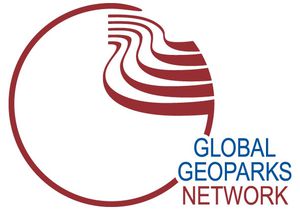European and Global Geoparks Network
What is a Geopark?
Geoparks are areas that are committed to a strategy for sustainable development based on their natural and cultural values. The Basque Coast Geopark, the first in the Basque Country and in the whole of Cantabrian coast, was created to implement these ideas in the towns of Zumaia, Deba and Mutriku.
We, at the Basque Coast Geopark, are working to support and promote the natural environment, in particular our geological environment, but we are also working to promote the culture of our region. We want to preserve all this heritage as a legacy for future generation.
Similarly, the Geopark aims to be recognised for its participatory nature, so your ideas and suggestions are always welcome.
European and Global networks
The European Geoparks Network (EGN) is a voluntary association of territories that are committed to developing a common specific methodology and management practices to promote and care for the natural and cultural values of their environment and heritage, focusing in particular on geological heritage.
Geoparks offer a fourth dimension to the cultural, natural and physical space: the dimension of geological time and history of the Earth. Therefore, this represents a new initiative in terms of a model for managing a territory and all aspects related to enhancing its value as a new resource. The European Geoparks Charter includes the overall objectives of the Network and was officially accepted on 5 June 2000 on the Greek island of Lesvos and was signed by the four founding members of the Geoparks Network.Every territory wishing to become a European Geopark is obligated to accept this Charter.
- European Geoparks network map and list of members.
- Global Geoparks network map and list of members.
- Global Geoparks network webpages: visitgeoparks.org / globalgeoparks.org
_display.jpg)
Charter of the European Network of Geoparks
The Charter of the European Network of Geoparks covers the general aims of the Network and was officially endorsed on 5 June 2000 on the Greek island of Lesbos by the four territories that set up the Network. Each territory wishing to become a European Geopark must accept this Charter:
- A European Geopark must have well-defined boundaries and be of a sufficient size so that true economic development can take place inside it. Each territory must comprise points of geological interest of proven significance in terms of their scientific quality, rarity, aesthetic appeal or educational value, plus other sites of archaeological, ecological, historical or cultural interest.
- European Geoparks are part of a network and benefit from measures to protect and manage them. Any destruction or sale of geological objects within their boundaries cannot be tolerated. The European Geopark must be managed by a well-specified structure capable of enforcing compliance with the protection, improvements and policies relating to sustainable development within its territory.
- A European Geopark plays an active role in the economic development of its territory with the enhancement of an overall image linked to the geological heritage and the development of responsible tourism and geotourism. A European Geopark exerts a direct impact on the territory owing to its effect on the inhabitants' living conditions and their environment. It must also encourage its inhabitants to participate actively in the revitalisation of the territory as a whole.
- A European Geopark develops, experiments and improves the methods designed to preserve its geological heritage.
- A European Geopark supports environmental education, training and the development of scientific research in the various disciplines within Earth Sciences, the improvement of the natural environment and sustainable development policies.
- A European Geopark must work to further the building and cohesion of the Network. It works with local enterprises to promote and support the creation of new products linked to the geological heritage in a spirit of complementarity with the other European members of the Network of Geoparks.
